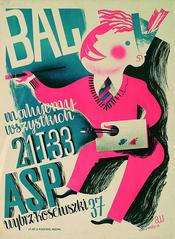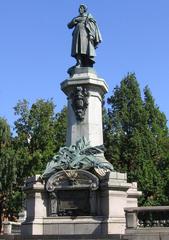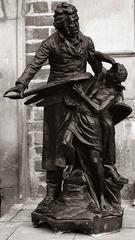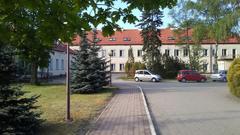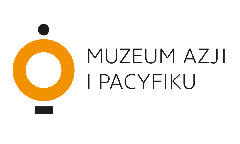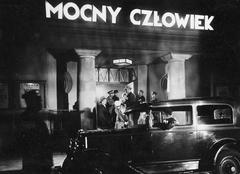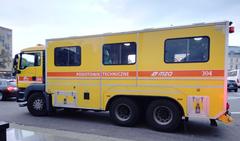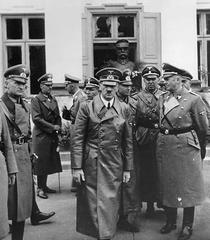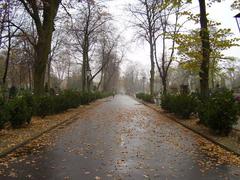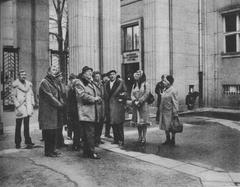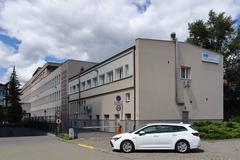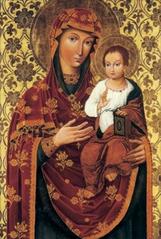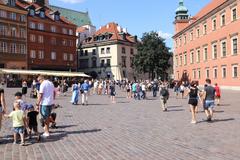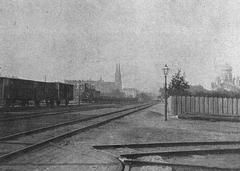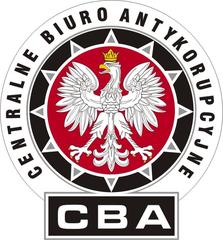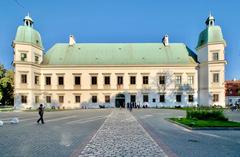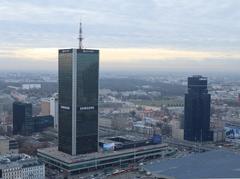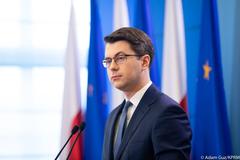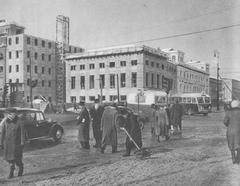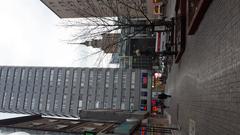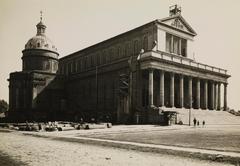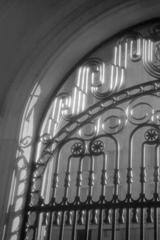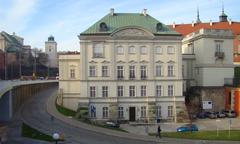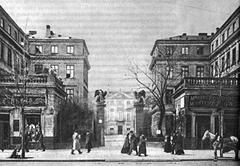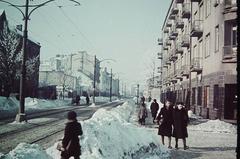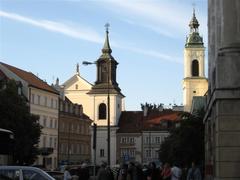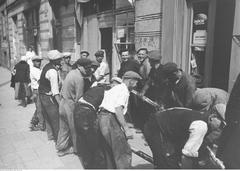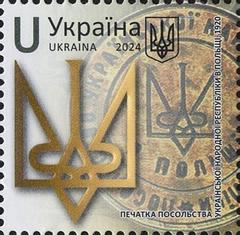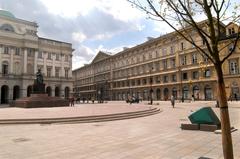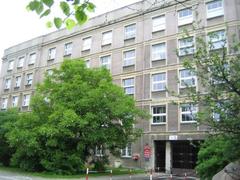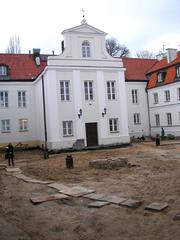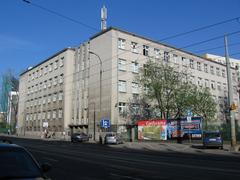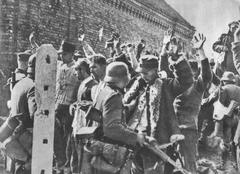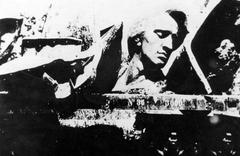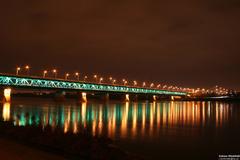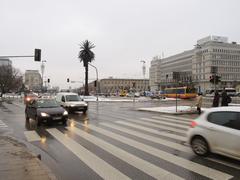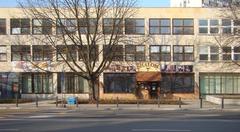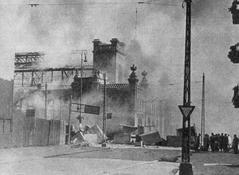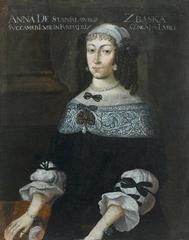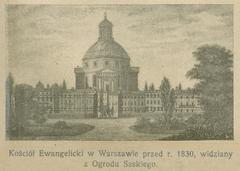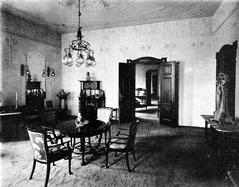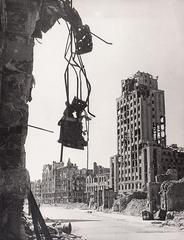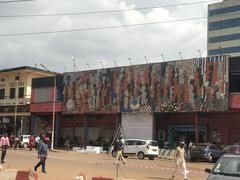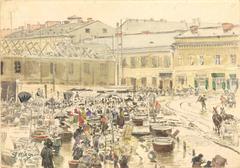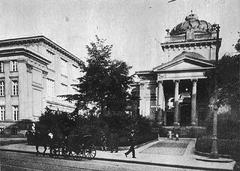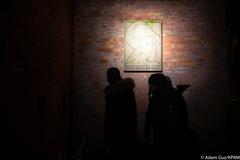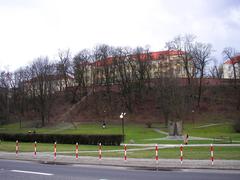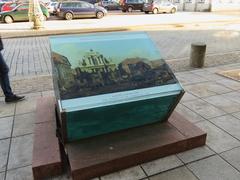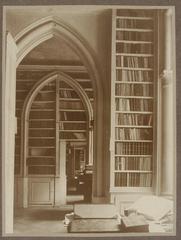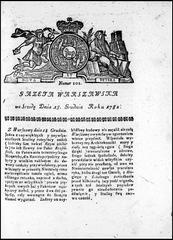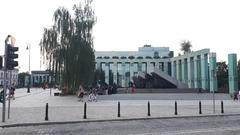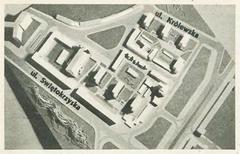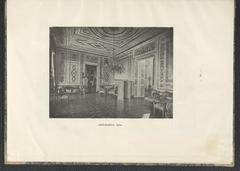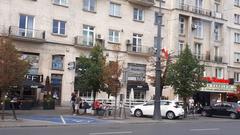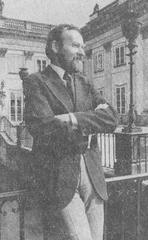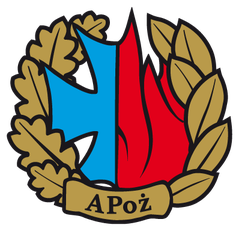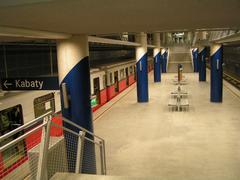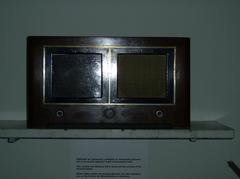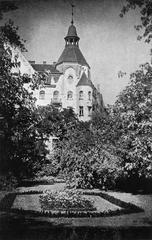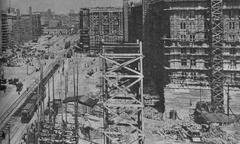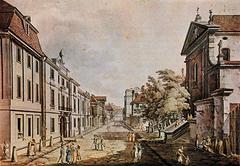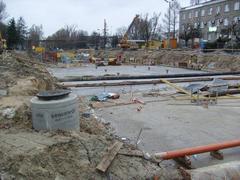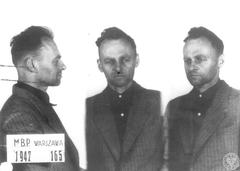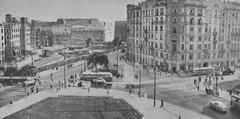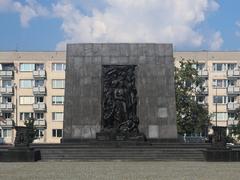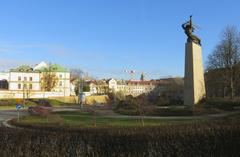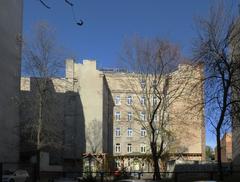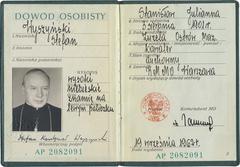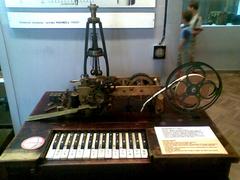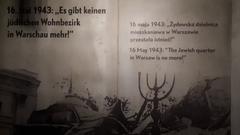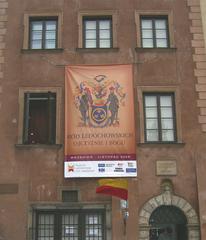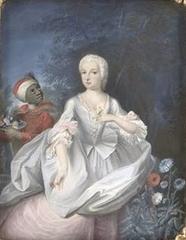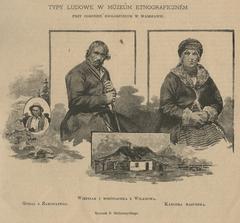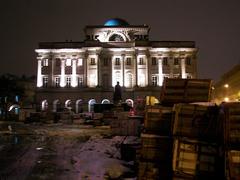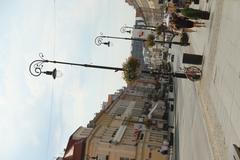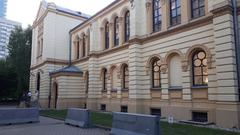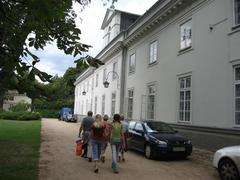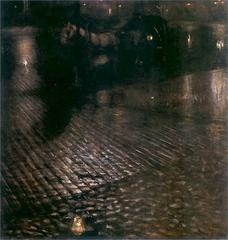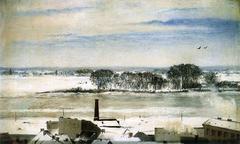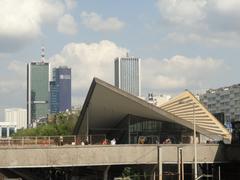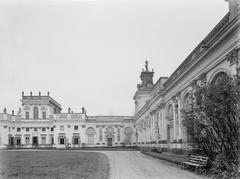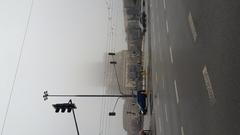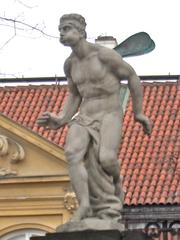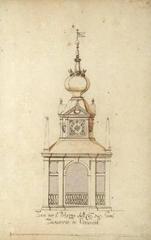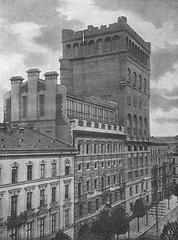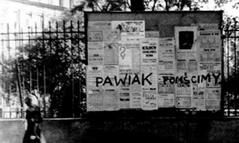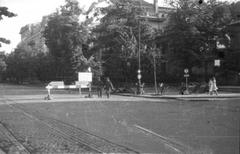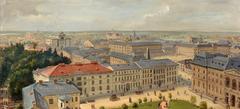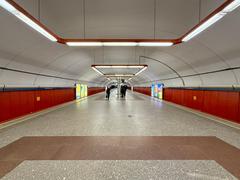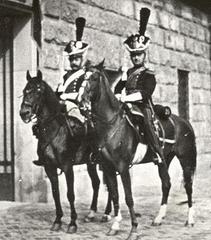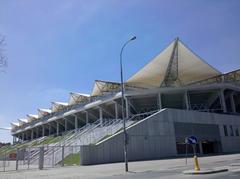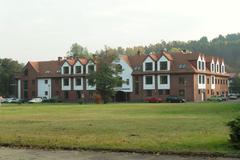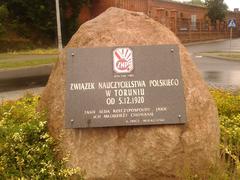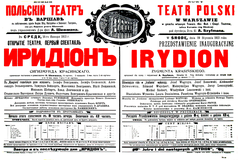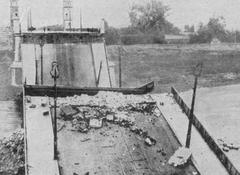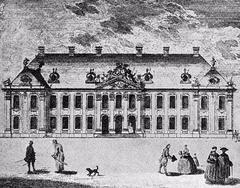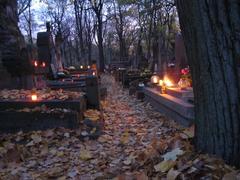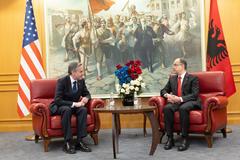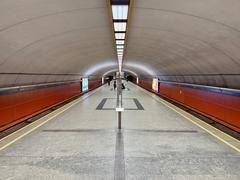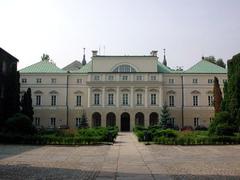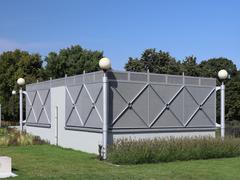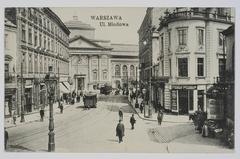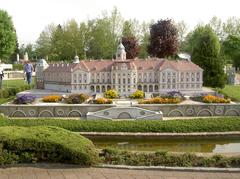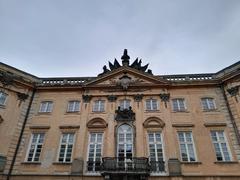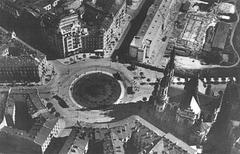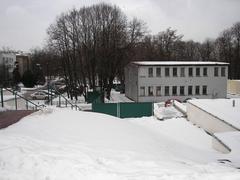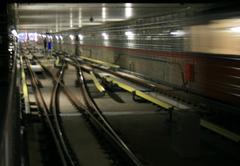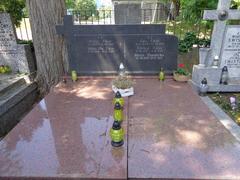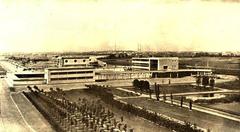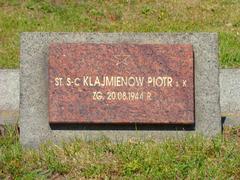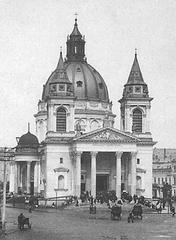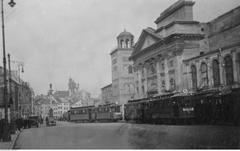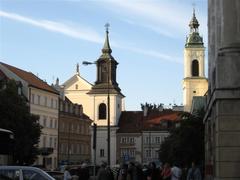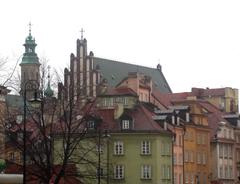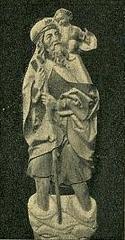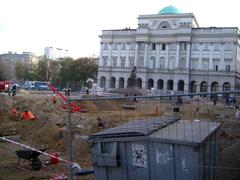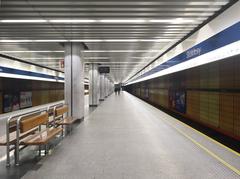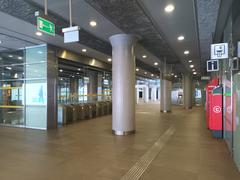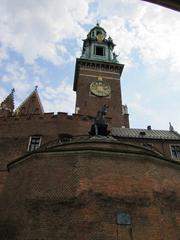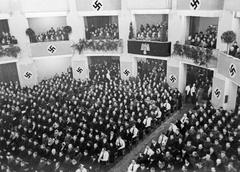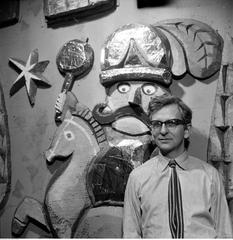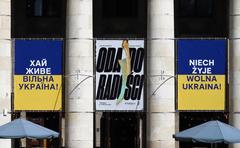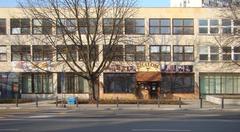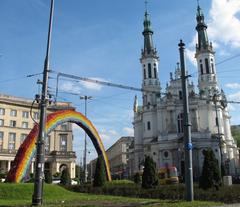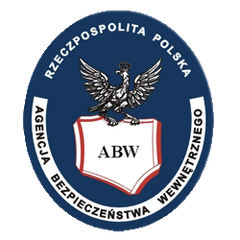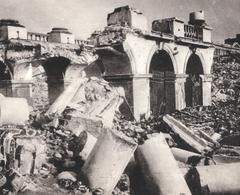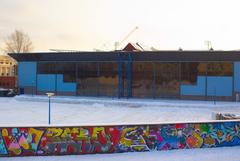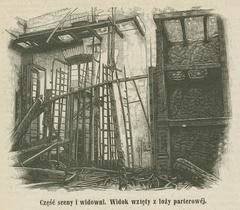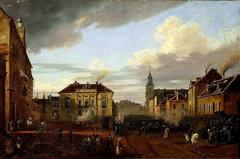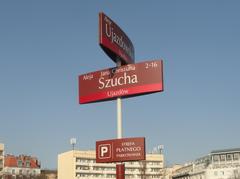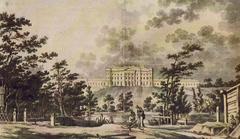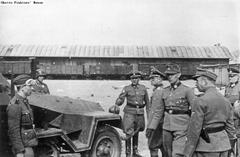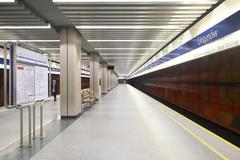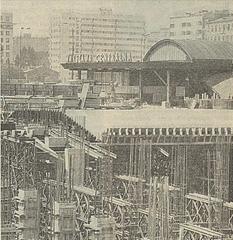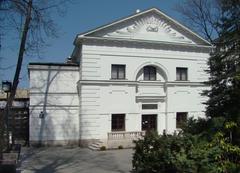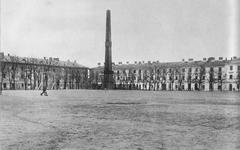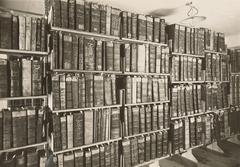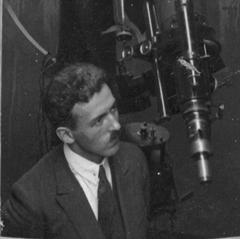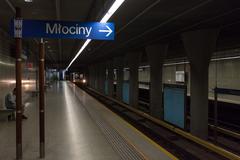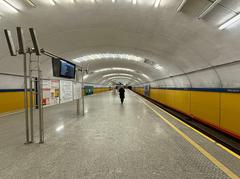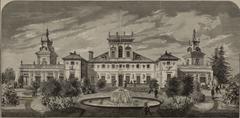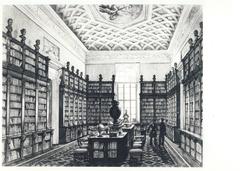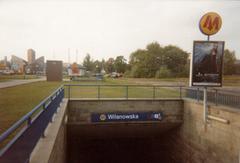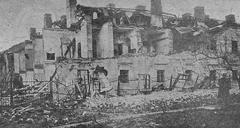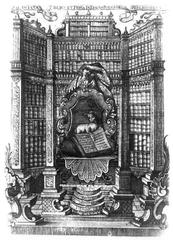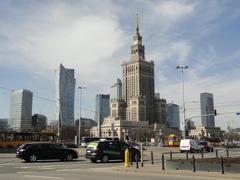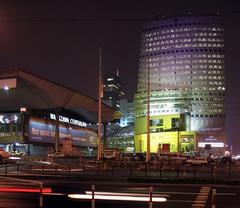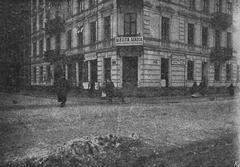
Faculty of Philosophy, University of Warsaw: Visiting Guide, Tickets, Hours, and Tips
Date: 03/07/2025
Introduction
Situated in the historic heart of Warsaw, the Faculty of Philosophy at the University of Warsaw stands as a symbol of Polish intellectual tradition and cultural resilience. Established in 1816, the faculty is not only an academic hub but also a living monument set alongside the city’s most celebrated landmarks, including the Royal Castle and Old Town. Visitors are drawn here by its storied past, its contributions to global philosophy—especially through the Lvov-Warsaw School—and its vibrant cultural atmosphere. This guide provides everything you need to plan a visit: practical information on hours, tickets, accessibility, guided tours, key highlights, and tips for making the most of your time in Warsaw’s academic district (University of Warsaw Faculty of Philosophy About Us, University of Warsaw History, Lvov-Warsaw School - Stanford Encyclopedia of Philosophy).
Table of Contents
- Introduction
- Historical Background and Significance
- Academic Contributions and the Lvov-Warsaw School
- Architectural Features and Campus Layout
- Visiting Hours and Ticket Information
- Guided Tours and Special Events
- Accessibility and Visitor Services
- Getting There: Travel Information
- Cultural and Intellectual Life
- Nearby Attractions
- Visitor Tips and Frequently Asked Questions
- Summary and Recommendations
- Official Sources and Further Reading
Historical Background and Significance
Founded as part of the University of Warsaw in 1816, the Faculty of Philosophy has played a central role in shaping Poland’s academic and cultural landscape. It is renowned for its association with the Lvov-Warsaw School, a philosophical movement initiated by Kazimierz Twardowski that positioned Poland at the forefront of modern logic and analytic philosophy. The faculty endured and contributed through periods of political upheaval, including partitions, wars, and the communist era, always maintaining a commitment to academic freedom and rigorous scholarship. Notable figures like Jan Łukasiewicz, Alfred Tarski, and Kazimierz Ajdukiewicz left legacies that continue to influence philosophical discourse worldwide (Lvov-Warsaw School - Stanford Encyclopedia of Philosophy).
Academic Contributions and the Lvov-Warsaw School
The Faculty of Philosophy is internationally recognized for its research and teaching in logic, analytic philosophy, language, epistemology, ethics, and metaphysics. Its curriculum offers both classical and modern philosophical studies, with an emphasis on critical thinking and scientific rigor. The faculty’s impact extends globally, particularly through its pivotal role in the development of logic and the philosophy of language. It continues to foster international collaboration, hosting conferences and seminars that draw leading thinkers to Warsaw (Faculty’s Curriculum, Erasmus+ Information).
Architectural Features and Campus Layout
Located at Krakowskie Przedmieście 3, the faculty is set within the University of Warsaw’s main campus—a blend of neoclassical and modern architecture. Highlights include the historic Kazimierzowski Palace and leafy courtyards, creating an inspiring academic ambiance. The faculty’s facilities comprise lecture halls, seminar rooms, and a well-stocked philosophy library with resources in Polish, English, and other languages (Faculty’s Library). The campus is pedestrian-friendly, with clear signage, bilingual information, and accessible amenities.
Visiting Hours and Ticket Information
- Campus Grounds: Open daily, 7:00 AM – 10:00 PM.
- Faculty Buildings: Weekdays, 8:00 AM – 6:00 PM (academic hours may vary).
- Philosophy Library: Generally open Monday–Friday, 9:00 AM – 5:00 PM (check library schedule).
- Tickets: Free entry to public areas. Some exhibitions or guided tours may require advance registration or a nominal fee.
- Guided Tours: Available during open days and by arrangement through the University Museum or faculty administration (contact page).
Guided Tours and Special Events
- Guided Tours: Explore the faculty’s architectural gems and philosophical heritage, including the influence of the Lvov-Warsaw School. Tours can be booked via the University Museum (University Museum website) or by contacting the faculty.
- Public Lectures and Seminars: The faculty regularly hosts open lectures, workshops, and conferences. Check the Faculty’s event calendar and PhilEvents for schedules.
- Academic Activities: International students and scholars can engage through Erasmus+ and other exchange programs.
Accessibility and Visitor Services
- Physical Accessibility: Most faculty and campus buildings are equipped with ramps, elevators, and accessible restrooms. Notify staff in advance for special assistance (Support Services).
- Language: While Polish is the primary language, many faculty and staff speak English, and key programs are offered in English (English-language Programs).
- Visitor Services: Maps, Wi-Fi (Eduroam), and information desks are available. Cafeterias and coffee shops offer affordable dining options.
Getting There: Travel Information
- Public Transport: Multiple tram and bus lines stop near the campus; the Nowy Świat-Uniwersytet (Line M2) metro station is a short walk away.
- On Foot: The campus is ideal for walking tours, especially from Old Town or the Royal Castle.
- By Car: Parking is limited and metered; public transport is recommended.
Cultural and Intellectual Life
The faculty is at the heart of Warsaw’s academic and cultural scene. Regular public debates, interdisciplinary seminars, and commemorative events reflect its vibrant intellectual atmosphere. The surrounding neighborhood offers a blend of academic tradition and urban culture, making it a rewarding destination beyond the classroom.
Nearby Attractions
Enhance your visit by exploring:
- Royal Castle: Just minutes away, offering insights into Polish history.
- Warsaw Old Town: A UNESCO World Heritage Site with picturesque streets and cafes.
- University Library: Famous for its rooftop gardens and modern design (University of Warsaw Museum Must-See Sites).
- Saxon Garden and Vistula Boulevards: Ideal for relaxation.
Visitor Tips and Frequently Asked Questions
Q: What are the opening hours?
A: Campus grounds: 7:00 AM–10:00 PM; Faculty buildings: 8:00 AM–6:00 PM on weekdays.
Q: Is there an entrance fee?
A: No; campus and most events are free. Some exhibitions/tours may require tickets.
Q: Are guided tours available?
A: Yes; book in advance through the University Museum or faculty.
Q: Is the campus accessible for people with disabilities?
A: Yes; with ramps, elevators, and support services.
Q: What languages are available for tours?
A: Polish and English.
Q: Where can I find campus maps?
A: At entrances and online (Campus Maps).
Q: How do I join an academic event or lecture?
A: Check the event calendar or contact the faculty (Faculty’s event calendar).
Summary and Recommendations
The Faculty of Philosophy at the University of Warsaw is a destination of enduring significance, offering free access to public areas, a calendar of engaging events, and a rich blend of academic and cultural experiences. Its strategic location in Warsaw’s historic center, paired with accessible facilities and the legacy of renowned philosophers, makes it essential for anyone seeking to explore Poland’s intellectual heritage. Plan ahead by reviewing schedules, booking tours, and using the Audiala mobile app for guided audio tours and real-time event updates (Audiala app).
Official Sources and Further Reading
- University of Warsaw Faculty of Philosophy About Us
- University of Warsaw History
- Lvov-Warsaw School - Stanford Encyclopedia of Philosophy
- Faculty of Philosophy University of Warsaw
- University of Warsaw Museum Must-See Sites
- University of Warsaw Faculties
- Erasmus+ Information University of Warsaw
- University of Warsaw Admissions and Events
- Audiala Mobile App
We look forward to welcoming you to the Faculty of Philosophy at the University of Warsaw! Plan your visit, immerse yourself in Warsaw’s academic heritage, and discover the vibrant life of this distinguished institution.

